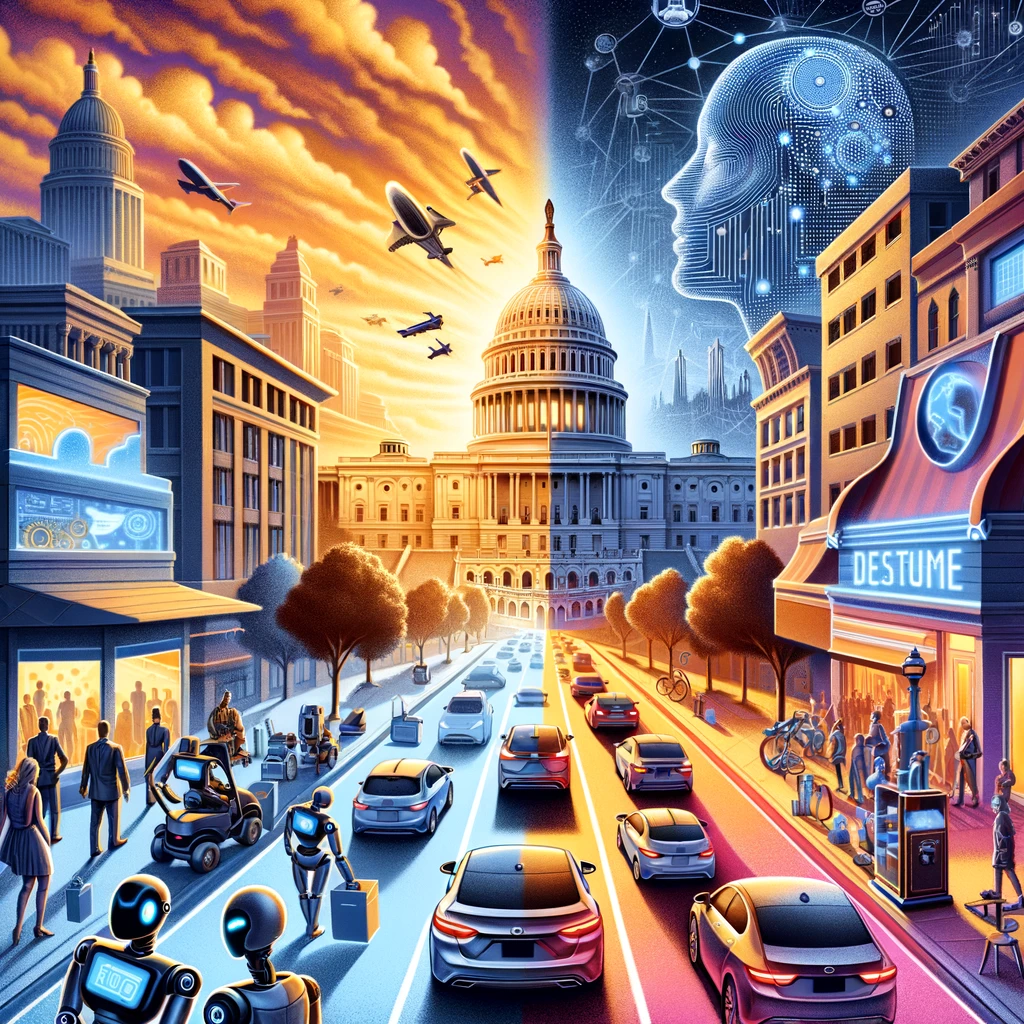Artificial intelligence is quietly reshaping the job market. Employers are increasingly using AI-powered tools to screen job candidates, moving beyond keyword searches on resumes to analyze candidates’ responses in written and video interviews. The Equal Employment Opportunity Commission (EEOC) is monitoring these developments, emphasizing that anti-discrimination laws still apply when AI assists in decision-making. However, lawmakers are yet to establish comprehensive regulations to govern AI use in hiring.
AI in education
AI is making its way into K-12 education, assisting both students and teachers with daily tasks and learning. Some schools are using AI-powered tutoring to enhance student achievement, while others employ AI to foster creativity through art projects. Decisions on AI use in the classroom are primarily left to school districts, but federal, state, and local authorities emphasize the need for AI to complement, not replace, educators.
AI in real estate
AI’s data analysis capabilities have the potential to transform the housing market by providing more information to homebuyers and sellers. For example, Zillow’s “Zestimate” tool calculates home values using AI. However, concerns arise due to the possibility of AI algorithms perpetuating biases, such as those from historical redlining practices. Federal agencies, including the Consumer Financial Protection Bureau (CFPB) and the Federal Housing Finance Agency, are proposing rules to regulate AI’s use in home value appraisals.
AI in healthcare
AI is becoming a valuable tool for healthcare professionals, assisting in interpreting medical images like X-rays and offering probable diagnoses. It also aids in analyzing patient notes, conversations, and test results. The Food and Drug Administration (FDA) is taking an experimental approach to regulate AI in medical devices, emphasizing transparency and updates to algorithms. Additionally, the Department of Health and Human Services (HHS) is working on creating an AI task force and safety program.
AI in medical billing
AI is streamlining the complex process of medical billing, potentially reducing costs and processing times. However, concerns about reduced transparency and accountability have arisen. Lawsuits have been filed against insurance companies like UnitedHealthcare and Cigna, accusing them of using AI to systematically deny care. These cases highlight the challenges of regulating AI, especially in industries where bias and fairness are critical issues.
Government response and regulation
While AI is transforming various aspects of everyday life, lawmakers are struggling to keep up with regulation. The Biden administration is attempting to coordinate federal agencies to assess the need for rules governing AI. However, comprehensive regulations regarding transparency, liability, and safety remain elusive. The evolving nature of AI and the reluctance of companies to reapply for regulatory clearance hinder effective oversight.
Artificial intelligence is silently reshaping everyday life, from job hiring and education to real estate, healthcare, and medical billing. While AI offers numerous benefits, it also presents risks related to discrimination, bias, and accountability. Policymakers are grappling with the challenge of establishing appropriate regulations to strike a balance between harnessing AI’s potential and mitigating its potential harms.





